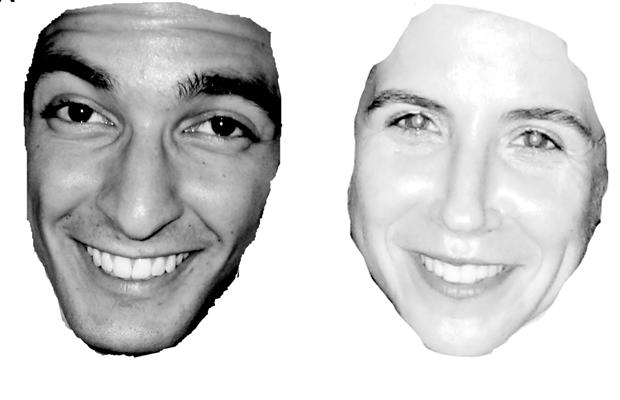A recent study published in the journal PLoS One says it is. The Ottawa Citizen article reports that researchers say we can tell if someone is gay in less time than it takes to blink.
Apparently, college students could tell by looking at young men and women’s faces that flashed for just 50
milliseconds! That’s fast.

Photograph: Handout, PLoS ONE and Tabak and Zayas
From the article in the Citizen: “‘(The images) were so briefly shown, they were grey-scale, and they were
turned upside down. Let that sink in for a minute and it’s shocking
that people could make these judgments so efficiently,’ says lead author
Joshua Tabak, a doctoral candidate in psychology at the University of
Washington.”
The 196 students who participated in the study were shown 96 photos of young men and women. As you can see above, the images they were shown were black and white, free of hair, makeup, glasses and other distractions.
Participants’ gaydar was 65 percent accurate for women and 57 percent for men. I guess lesbians have more distinctive features than gay men? The students’ gaydar is so fine-tuned that their “skills persisted even when the faces were inverted.”
The article concludes by saying that the reason we’re good at intuitively recognizing people’s sexuality could be evolutionary: it makes mating easier. GLAAD has not yet commented, and I wonder what it is they could say? “Hmmmmm . . . we really wish our gaydar was this accurate. A rate of 57 percent — only seven percent of the time do you have better ‘ability’ than pure chance (which would be 50/50, gay or straight). But the 65 percent — that’s really interesting. My goodness, humanity has a new superpower: detecting lesbians!”
 Why you can trust Xtra
Why you can trust Xtra


